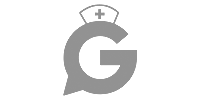Preparing for the NCLEX can be a daunting task, especially when it comes to mastering the vast array of topics covered in the exam. Among these, understanding laboratory values, medications, and physiology is crucial for success. This comprehensive guide will delve into 33 NCLEX-style questions focusing on these areas, complete with explanations and answers to enhance your understanding. As a bonus, we will also introduce a nursing math mnemonic to help you tackle dosage calculations with ease.
🎯 Free NCLEX quiz on this topic!
Test your knowledge after you finish reading.
Understanding the NCLEX Exam
The NCLEX (National Council Licensure Examination) is a standardized exam that every nursing graduate must pass to become a licensed nurse in the United States and Canada. The exam tests the knowledge, skills, and abilities essential for safe and effective practice as a newly licensed, entry-level nurse.
Importance of Labs, Medications, and Physiology
- Laboratory Values: Understanding normal and abnormal lab values is critical for assessing patient conditions and making informed clinical decisions.
- Medications: Knowledge of pharmacology, including drug actions, side effects, and interactions, is vital for safe medication administration.
- Physiology: A solid grasp of human physiology helps in understanding disease processes and the rationale behind nursing interventions.
33 NCLEX Questions with Explanations and Answers
Section 1: Laboratory Values
-
Question 1: What is the normal range for serum potassium levels?
- Answer: 3.5-5.0 mEq/L
- Explanation: Potassium is crucial for nerve function and muscle contraction. Abnormal levels can lead to cardiac arrhythmias.
-
Question 2: A patient’s blood glucose level is 250 mg/dL. What condition does this indicate?
- Answer: Hyperglycemia
- Explanation: Normal fasting blood glucose levels are 70-99 mg/dL. Elevated levels suggest hyperglycemia, often associated with diabetes.
🥇Voted #1 Nursing Study Tool.
Personalized AI Tutor + Instant Answers to All Your Questions. 100% Money Back Guarantee!
- Question 3: What is the significance of a high BUN (Blood Urea Nitrogen) level?
- Answer: It may indicate kidney dysfunction or dehydration.
- Explanation: BUN is a waste product filtered by the kidneys. High levels suggest impaired kidney function or dehydration.
Section 2: Medications
-
Question 4: What is the primary action of beta-blockers?
- Answer: They reduce heart rate and blood pressure.
- Explanation: Beta-blockers block the effects of adrenaline, slowing the heart rate and reducing blood pressure.
-
Question 5: Which medication is used as an antidote for opioid overdose?
- Answer: Naloxone (Narcan)
- Explanation: Naloxone is an opioid antagonist that reverses the effects of opioid overdose.
-
Question 6: What are common side effects of ACE inhibitors?
- Answer: Cough, hyperkalemia, and hypotension.
- Explanation: ACE inhibitors can cause a persistent cough due to increased bradykinin levels.
Section 3: Physiology
-
Question 7: What is the primary function of the alveoli in the lungs?
- Answer: Gas exchange
- Explanation: Alveoli are tiny air sacs where oxygen and carbon dioxide are exchanged between the lungs and blood.
-
Question 8: Describe the role of insulin in the body.
- Answer: Insulin facilitates the uptake of glucose into cells.
- Explanation: Insulin lowers blood glucose levels by promoting cellular uptake and storage of glucose.
-
Question 9: What is the physiological response to hypovolemia?
- Answer: Increased heart rate and vasoconstriction.
- Explanation: The body compensates for low blood volume by increasing heart rate and constricting blood vessels to maintain blood pressure.
Additional Questions
-
Question 10: What is the normal range for serum calcium levels?
- Answer: 8.5-10.5 mg/dL
- Explanation: Calcium is vital for bone health, muscle function, and nerve signaling.
-
Question 11: Which medication class is commonly used to treat hypertension and heart failure?
- Answer: ACE inhibitors
- Explanation: They help relax blood vessels and reduce blood pressure.
-
Question 12: What is the role of the liver in drug metabolism?
- Answer: The liver metabolizes drugs, making them easier to excrete.
- Explanation: The liver converts drugs into more water-soluble compounds for elimination.
-
Question 13: What is the normal range for hemoglobin in adult females?
- Answer: 12-16 g/dL
- Explanation: Hemoglobin is essential for oxygen transport in the blood.
-
Question 14: What is the mechanism of action of diuretics?
- Answer: They increase urine output by promoting the excretion of sodium and water.
- Explanation: Diuretics help reduce fluid overload and lower blood pressure.
-
Question 15: What is the significance of elevated troponin levels?
- Answer: They indicate myocardial infarction (heart attack).
- Explanation: Troponin is a cardiac enzyme released during heart muscle injury.
-
Question 16: Which electrolyte imbalance is associated with muscle cramps and spasms?
- Answer: Hypocalcemia
- Explanation: Low calcium levels can lead to neuromuscular irritability.
-
Question 17: What is the therapeutic range for digoxin?
- Answer: 0.5-2.0 ng/mL
- Explanation: Digoxin is used to treat heart failure and atrial fibrillation; monitoring levels prevents toxicity.
-
Question 18: What is the primary function of the kidneys?
- Answer: Filtration and excretion of waste products.
- Explanation: The kidneys filter blood, removing waste and excess substances.
-
Question 19: What is the normal range for serum sodium levels?
- Answer: 135-145 mEq/L
- Explanation: Sodium is crucial for fluid balance and nerve function.
-
Question 20: What is the action of anticoagulants?
- Answer: They prevent blood clot formation.
- Explanation: Anticoagulants reduce the risk of thromboembolic events.
🥇Voted #1 Nursing Study Tool.
Personalized AI Tutor + Instant Answers to All Your Questions. 100% Money Back Guarantee!
-
Question 21: What is the physiological effect of aldosterone?
- Answer: It increases sodium and water reabsorption in the kidneys.
- Explanation: Aldosterone helps regulate blood pressure and fluid balance.
-
Question 22: What is the normal range for serum creatinine levels?
- Answer: 0.6-1.2 mg/dL
- Explanation: Creatinine is a waste product filtered by the kidneys; elevated levels indicate renal impairment.
-
Question 23: What is the primary action of calcium channel blockers?
- Answer: They relax blood vessels and reduce heart rate.
- Explanation: Calcium channel blockers lower blood pressure and treat angina.
-
Question 24: What is the role of the pancreas in digestion?
- Answer: It produces digestive enzymes and insulin.
- Explanation: The pancreas aids in digestion and regulates blood sugar levels.
-
Question 25: What is the normal range for platelet count?
- Answer: 150,000-450,000/mm³
- Explanation: Platelets are essential for blood clotting.
-
Question 26: What is the mechanism of action of proton pump inhibitors?
- Answer: They reduce stomach acid production.
- Explanation: Proton pump inhibitors treat acid-related disorders like GERD.
-
Question 27: What is the physiological response to hypercapnia?
- Answer: Increased respiratory rate.
- Explanation: Elevated carbon dioxide levels stimulate breathing to expel excess CO2.
-
Question 28: What is the normal range for serum magnesium levels?
- Answer: 1.5-2.5 mEq/L
- Explanation: Magnesium is vital for muscle and nerve function.
-
Question 29: What is the primary action of statins?
- Answer: They lower cholesterol levels.
- Explanation: Statins reduce the risk of cardiovascular disease by lowering LDL cholesterol.
-
Question 30: What is the role of the hypothalamus in the endocrine system?
- Answer: It regulates the pituitary gland and hormone secretion.
- Explanation: The hypothalamus maintains homeostasis by controlling endocrine functions.
-
Question 31: What is the normal range for white blood cell count?
- Answer: 4,500-11,000/mm³
- Explanation: White blood cells are crucial for immune defense.
-
Question 32: What is the mechanism of action of bronchodilators?
- Answer: They relax airway muscles to improve breathing.
- Explanation: Bronchodilators treat respiratory conditions like asthma.
-
Question 33: What is the physiological effect of antidiuretic hormone (ADH)?
- Answer: It promotes water reabsorption in the kidneys.
- Explanation: ADH helps maintain fluid balance and blood pressure.
Bonus: Nursing Math Mnemonic
To simplify dosage calculations, remember the mnemonic: "D/H x Q = X".
- D: Desired dose
- H: Dose on hand
- Q: Quantity of the dose on hand
- X: Amount to administer
Example
If a doctor orders 500 mg of a medication, and you have 250 mg tablets on hand, how many tablets should you give?
- D = 500 mg
- H = 250 mg
- Q = 1 tablet
Using the formula: 500 ÷ 250 x 1 = 2 tablets
🥇Voted #1 Nursing Study Tool.
Personalized AI Tutor + Instant Answers to All Your Questions. 100% Money Back Guarantee!
Conclusion
Mastering laboratory values, medications, and physiology is essential for NCLEX success. By practicing these 33 questions and understanding the explanations, you can enhance your knowledge and confidence. Additionally, using the nursing math mnemonic will aid in accurate dosage calculations, ensuring safe patient care. Remember, consistent practice and a thorough understanding of these concepts are key to passing the NCLEX and becoming a competent nurse.







